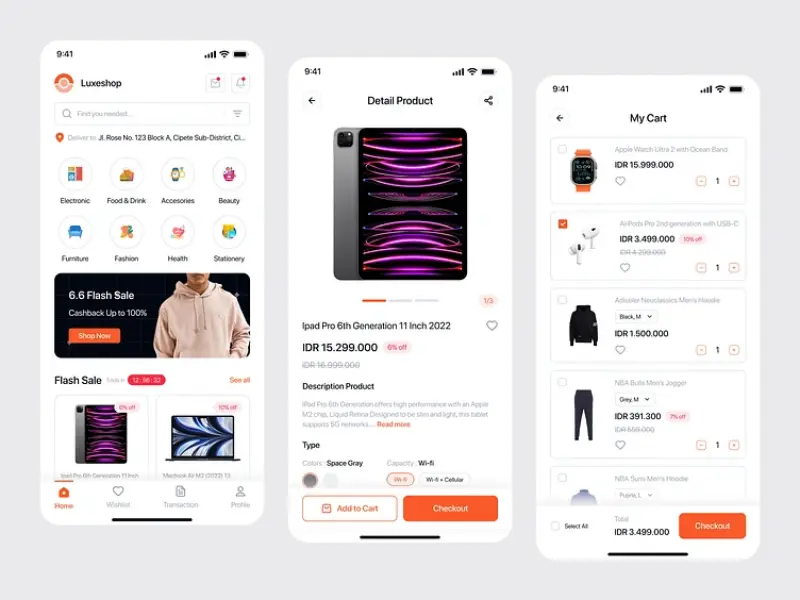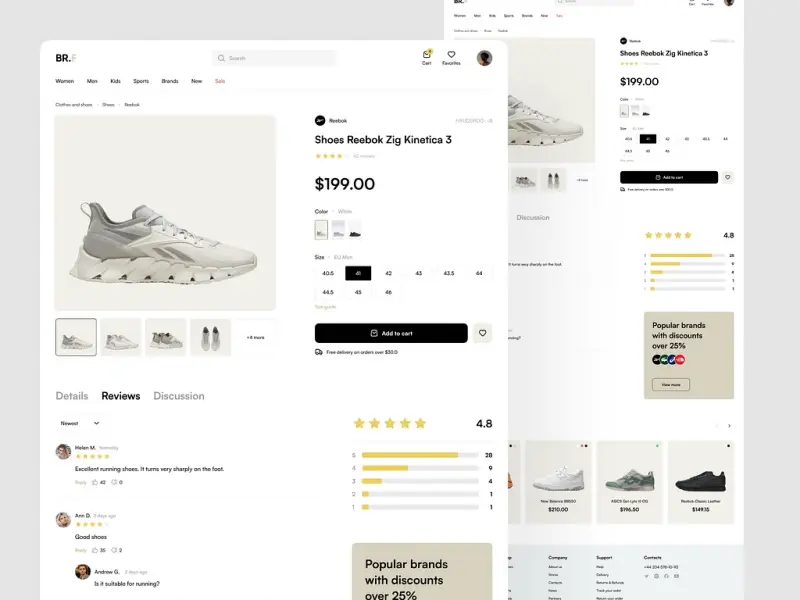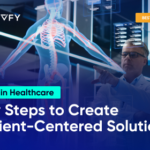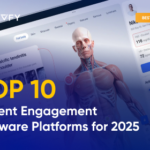Ecommerce Customer Relationship Management: Full Guide
When you launch an online business, it doesn’t take long to notice something: your competition is always just a click away, ready to capitalize on any misstep. That’s why one of your most powerful tools for staying ahead is customer retention. Sure, offering high-quality products is crucial, but creating a seamless customer experience is what truly sets you apart.
In the fast-paced world of e-commerce, the customer lifecycle moves at lightning speed, meaning you need to work even harder than traditional retailers to keep customers coming back. This is where Ecommerce customer relationship management software steps in to save the day. By turning one-time buyers into loyal customers, a CRM for ecommerce not only secures long-term relationships but also creates consistent revenue and strengthens your position in the market.
I. What is an Ecommerce CRM?
Let’s start with the basics: CRM stands for Customer Relationship Management. It’s a tool designed to help you store and manage essential information about your current customers and potential leads—all in one place.
CRM for Ecommerce
Think of it as your business’s command center. It organizes everything you need to know about your customers, from their buying habits to their preferences, making it easier to manage relationships and spot new opportunities.
For an e-commerce business, where things evolve at breakneck speed, a CRM is a game changer. It gives you a clear picture of your customer interactions and streamlines your operations, so you can focus on what matters most—growing your business.
Looking to Build a Custom eCommerce App?
Contact TECHVIFY – Vietnam’s Leading Offshore Software Development & Outsourcing Company, for consultation and development services.
II. Why CRM Systems Matter in E-commerce
E-commerce is a fast-paced industry where customer loyalty can make or break a business. According to McKinsey, over 75% of consumers have changed their buying habits since the pandemic, with 39% switching brands or retailers. This means businesses need to work harder than ever to retain customers.
One proven way to do this is through well-designed loyalty programs. When implemented correctly, these programs can increase revenue by 15 to 25% annually by encouraging repeat purchases and larger basket sizes. But to deliver this kind of personalized experience, businesses need the insights and tools provided by an effective CRM system.
Learn More On:
Centralized Customer Data: The Backbone of CRM
At the heart of every ecommerce customer relationship management system is centralized customer data, which serves as the foundation for better decision-making and personalized customer experiences.
Here’s how CRMs help organize and optimize customer data:
- Purchase History: Track what your customers are buying to understand their preferences and predict future needs.
- Customer Preferences: Use insights about likes and dislikes to create tailored marketing campaigns and product recommendations.
- Communication Records: Keep a detailed history of every customer interaction to deliver consistent and informed support.
- Data Integration: Pull data from various sources into one platform for a complete view of each customer.
By centralizing customer data, businesses can streamline operations, improve decision-making, and offer more personalized services. This leads to better customer experiences, stronger loyalty, and, ultimately, higher retention rates.
Personalized Marketing: Winning Hearts, One Customer at a Time
In today’s competitive market, personalized marketing is the secret to standing out. An e-commerce CRM makes it easy for businesses to tailor their marketing and communication efforts to meet individual customer needs.
Here’s how CRM systems take personalization to the next level:
- Segmented Marketing: Group customers by demographics, behavior, or preferences to create more targeted campaigns.
- Customized Communication: Send personalized emails or messages that make customers feel valued and understood.
- Targeted Offers: Use customer data to craft offers that are more likely to resonate with specific buyers.
- Behavioral Insights: Analyze customer behavior to design campaigns that speak directly to their interests.
- Automated Campaigns: Save time by automating personalized emails and messages—ensuring consistency and engagement.
When customers feel like a brand truly understands their needs, they’re far more likely to come back. Personalized marketing doesn’t just drive engagement; it fosters long-term loyalty and repeat purchases.
Enhanced Customer Service: Building Trust Through Better Support
Providing excellent customer service is non-negotiable in e-commerce, and CRM software for ecommerce makes it easier than ever to deliver. By equipping support teams with detailed customer information, CRMs ensure that every interaction feels personal and efficient.
Here’s how CRM systems transform customer support:
- Detailed Customer Profiles: Access a complete history of customer interactions, preferences, and past purchases.
- Faster Response Times: With all the information at their fingertips, support teams can resolve inquiries quickly.
- Personalized Assistance: Tailor responses based on a customer’s history for a more personalized experience.
- Issue Tracking: Log and track customer issues to identify patterns and improve your products or services.
- Proactive Engagement: Stay ahead of the game by sending follow-ups or checking in with customers to ensure satisfaction.
Great customer service is the foundation of customer loyalty. By leveraging a CRM, businesses can ensure that every customer feels supported and valued, building trust and long-term relationships.
III. How to Successfully Integrate CRM with Your E-commerce Platform
So, you’ve set up your e-commerce site, but now you’re wondering how to integrate it with a Customer Relationship Management (CRM) system. Don’t worry—you’re not alone! Integrating your CRM with your e-commerce platform may seem like a big task, but it’s absolutely worth it. The right integration can transform how you connect with your customers, streamline operations, and boost sales.
Here’s a step-by-step guide to help you get started:
1. Plan Ahead for Seamless Integration
Before diving headfirst into integration, take a step back and plan. Reflect on your customer-facing processes and identify the types of experiences you want to deliver.
Here are a few questions to ask yourself:
- What kind of data should be included in key communications like order confirmation emails?
- What information should customers have access to in their portal?
- How will this integration enhance the customer journey?
Taking the time to map out these details ensures that your CRM and e-commerce systems work together smoothly, delivering the kind of personalized, seamless experience your customers expect.
Ecommerce CRM software
2. Train Your Team to Maximize New Capabilities
Integrating your CRM with your e-commerce platform isn’t just about the technology—it’s also about the people using it. Ensure your employees are trained to take full advantage of the new system.
Here’s what your team should know about the benefits of integration:
- How to leverage new online behavioral data to better understand customers.
- The ability to create hyper-focused marketing campaigns tailored to specific customer segments.
- How to pair customers with personalized promotions and offers.
By investing in proper training, you’ll empower your team to use the system effectively, ensuring you get the most value out of your integration.
3. Support and Refine Your Key Systems
A successful integration isn’t just about connecting two platforms—it’s about enhancing the functionality of your entire business. Take the time to evaluate and refine the interrelated processes within your e-commerce business.
Ask yourself:
- Are your existing systems prepared to support this integration?
- How can your new CRM-eCommerce connection improve operational efficiency?
- Are there any gaps in your current workflows that the integration can address?
By focusing on how your CRM and e-commerce platform work together, you’ll set your business up for long-term success.
Learn More On:
IV. Types of CRM for E-commerce Integration
Not all CRMs are created equal, and the type of CRM you choose will depend on your business’s size, complexity, and goals. Each type of CRM has its own strengths, but all share one common goal: helping you better understand and connect with your customers.
Here’s a breakdown of the three main types of CRMs to consider:
1. Operational CRM
Operational CRMs focus on streamlining processes involved in building and maintaining customer relationships.
Key benefits for e-commerce businesses:
- Manage large volumes of customers and track interactions effortlessly.
- Automate marketing tasks like sending newsletters and promotional emails.
- Generate leads, convert them into customers, and provide the infrastructure to retain those customers.
If you’re looking to simplify workflows and improve efficiency, an operational CRM is a great choice.
2. Analytical CRM
Analytical CRMs help businesses gain actionable insights from large amounts of customer data.
Key benefits for e-commerce businesses:
- Track customer behavior and predict future purchases.
- Analyze the effectiveness of marketing campaigns to improve performance.
- Make data-driven decisions to drive sales and optimize your business.
This type of CRM is ideal for businesses that want to better understand their customers and make more informed decisions based on data.
CRM software for Ecommerce
3. Collaborative CRM
Collaborative CRMs focus on connecting teams and departments by creating a single, unified source of customer information.
Key benefits for e-commerce businesses:
- Improve internal communication, ensuring everyone has access to the same customer data.
- Enhance collaboration with suppliers, manufacturers, and distributors.
- Deliver a seamless customer experience by aligning all departments.
For businesses that rely on teamwork and partnerships, a collaborative CRM can be a game-changer.
Combining CRM Types for Maximum Impact
While each CRM type has its own strengths, e-commerce businesses often benefit from using a combination of Operational, Analytical, and Collaborative CRMs. Together, they provide a comprehensive solution that streamlines workflows, improves decision-making, and enhances customer relationships.
Conclusion
In today’s competitive e-commerce landscape, integrating a powerful CRM system is no longer optional—it’s essential. By centralizing customer data, personalizing marketing efforts, and streamlining customer service, you can create a seamless, engaging shopping experience that drives loyalty and boosts sales. Whether you’re just starting or looking to optimize your existing systems, a well-integrated CRM is the key to unlocking your business’s full potential.
Ready to take your e-commerce business to the next level? Contact TECHVIFY today for a free consultation on CRM development and integration services. Let’s work together to build a smarter, more efficient system tailored to your needs—because your customers deserve the best.
TECHVIFY – Global AI & Software Solution Company
From Startups to Industry Leaders: TECHVIFY prioritizes results, not just deliverables. Accelerate your time to market and see ROI early with high-performing teams, AI (including GenAI) Software Solutions, and ODC (Offshore Development Center) services.
- Email: [email protected]
- Phone: (+84)24.77762.666








